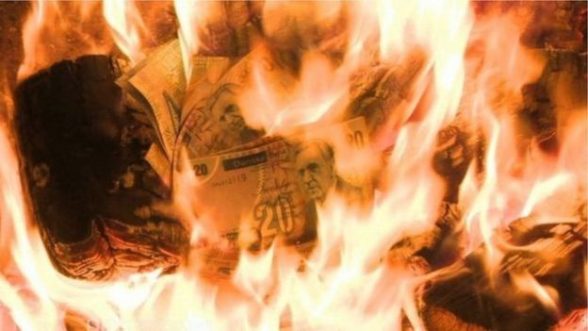 ONE in ten of the ‘cash-for-ash’ burners are located across Derry, we can reveal.
ONE in ten of the ‘cash-for-ash’ burners are located across Derry, we can reveal.
Out of the 2,128 recipients across the North of Ireland who benefitted from the Renewable Heat Incentive scheme, a total of 228 firms were in Derry city and Co Derry post code areas.
But those who reaped the rewards from the RHI scheme are not being revealed by DUP Eonoomy Minister Simon Hamilton even though it is public money.
The PSNI says the Chief Constable is considering a request for detectives to carry out a fraud investigation into the RHI scandal.
A breakdown of that figure shows where the recipients of the burners live:
- 67 are in Magherafetl;
- 56 are in Derry city;
- 51 are in Coleraine;
- 33 are in Limavady;
- 20 are in Maghera;
- and one in Portstewart.
However, most companies on the lucrative RHI scheme are based in mid-Ulster and north Antrim, according to information passed to the BBC.
A regional breakdown of installations published by the Stephen Nolan Show on Radio Ulster shows the biggest cluster is around Dungannon.
There are 342 boilers there – about one-in-six of the total.
The statistics show the total of 2,128 recipients are split roughly between commercial and farming interests.
Around Ballymena and Ballymoney there are 276 boilers.
Poultry farmers are heavily represented, accounting for 871 of the installations.
The two main clusters are close to Moy Park’s processing plants in Northern Ireland, in Ballymena and Dungannon.
Poultry farmers use the boilers to heat chicken houses where the birds are reared.
Many switched from LPG gas to biomass in recent years.
Other areas where there are significant numbers of boilers by postcode include Armagh which has 112 and Omagh which has 82.
Last week, Finance Minister Máirtín Ó Muilleoir said a Moy Park briefing with his officials had raised “issues” about the operation of the RHI scheme.
Moy Park later issued a statement but made no reference to those issues.
On Monday, the former DETI minister Jonathan Bell claimed under assembly privilege that he had been told DUP special advisers Timothy Johnston and John Robinson had extensive interests in the poultry industry, and that he would not be allowed to reduce the RHI tariff as a result.
The DUP later issued a statement of categorical denial on behalf of both men.
John Robinson said he had “no personal interest” in the poultry industry. He said two of his brothers were poultry farmers but were not in the RHI.
Timothy Johnston said he had “no family connections to the poultry industry”. He said he had two brothers in law in the poultry industry but neither had any connection with the RHI.
On Tuesday, Mr Bell said he was prepared to repeat allegations he made about the role played by special advisers in the RHI scheme, to a judge-led inquiry.
He was speaking during an an opposition debate in the Assembly calling for a public inquiry into the controversial scheme.
He also made further allegations about the RHI scheme – suggesting at least one DUP special adviser might have up to eight boilers. The party said it was an “outrageous claim”.
MLAs later voted for a public inquiry to be called into the controversy in a debate where Sinn Féin were absent.
The Renewable Heat Incentive (RHI) scheme was an attempt by the Northern Ireland Executive to help to increase consumption of heat from renewable sources.
But flaws in setting the scheme’s subsidy rate left it open to abuse as claimants could earn more cash the more fuel they burned, with the overspend estimated to be about £490m.
It has been centre stage in the North’s politics over the past month, with the resignation last Monday of deputy first minister Martin McGuinness.
Sinn Féin’s refusal to re-nominate a deputy first minister on Monday left Secretary of State James Brokenshire with no option but to call fresh Assembly elections on 2 March.
Former first minister and current DUP leader Arlene Foster set up the scheme in 2012 when she was enterprise minister.
However, she has been criticised for not introducing measures to cap payments as was introduced in England.
Tags:




